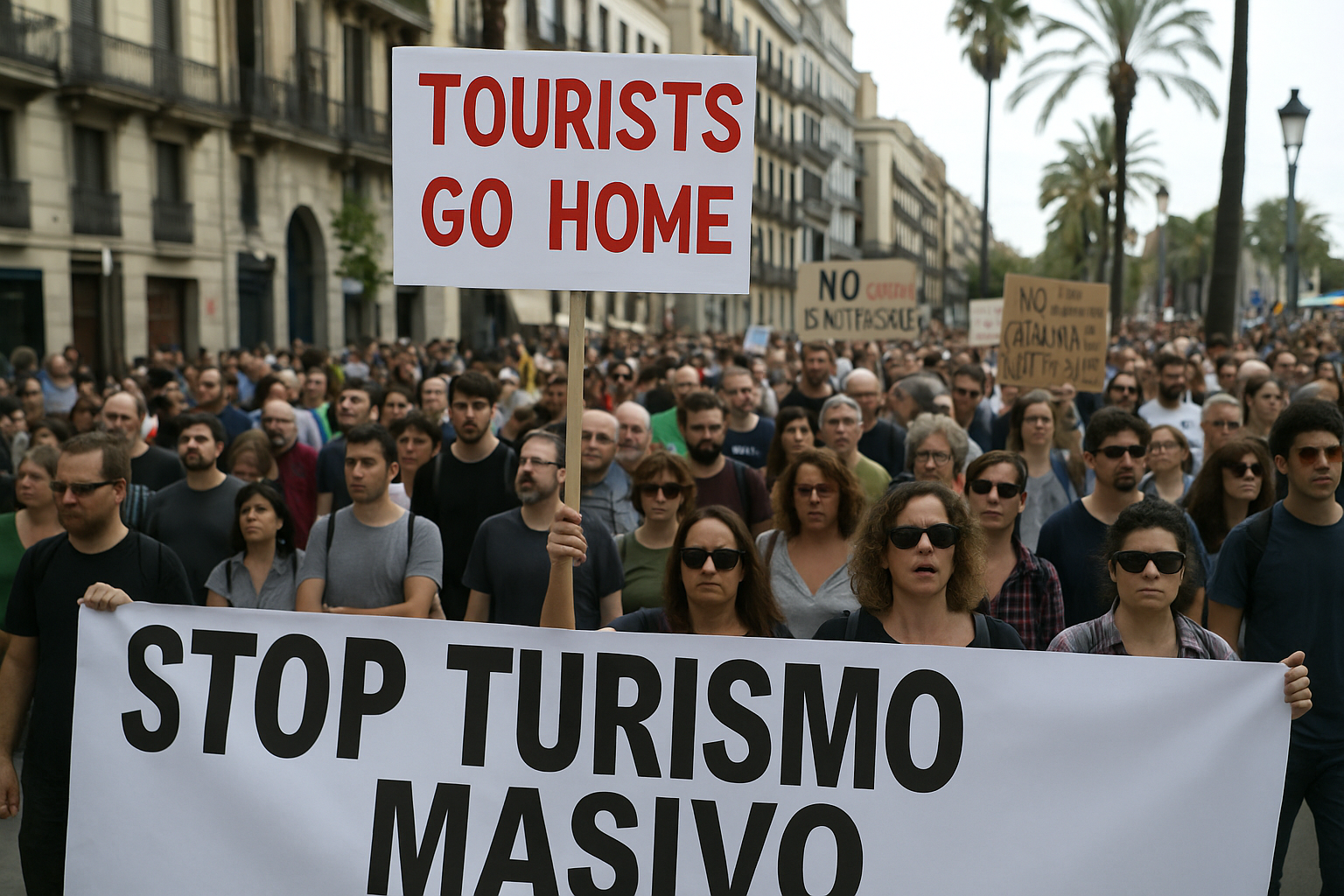As summer travel peaks and tourists flock to Europe’s most iconic destinations, a growing wave of discontent among locals is rising to the surface. On Sunday, June 15, 2025, a coordinated series of anti-tourism protests is set to take place across multiple cities in Spain, Italy, and Portugal. The demonstrations, fueled by increasing frustration over the negative effects of overtourism, aim to send a clear message to governments: current tourism models are no longer sustainable.
Organized by the Southern Europe Network Against Touristification (SET Network), the protests are expected to affect dozens of locations, drawing attention to issues such as skyrocketing housing costs, overcrowded public infrastructure, and diminishing quality of life for residents in some of Europe’s most visited cities.
Where Are the Protests Happening?
While the protests are not following a strict, centralized schedule, reports from AFAR, Catalan News, and local advocacy groups confirm that demonstrations are planned in the following cities:
In Spain:
- Barcelona
- Palma and other parts of Majorca
- Ibiza
- Menorca
- Valencia
- Bilbao
- San Sebastián (Donostia)
- Seville
- Granada
- Málaga
- Cantabria
- Tenerife
In Italy:
- Venice
- Naples
- Palermo
In Portugal:
- Lisbon
These protests are being led by various regional activist groups such as Menys Turisme, Més Vida in Majorca, who have long campaigned for more sustainable tourism policies. Demonstrators may gather at airports, train stations, tourist attractions, and main roads. There is potential for blockades of tour buses, public spaces, and high-footfall zones, particularly in cities like Venice and Barcelona, where tourism density is among the highest in Europe.
Why Are People Protesting?
At the heart of the protests lies deep dissatisfaction with how mass tourism is managed in southern Europe. Pablo Calvo, Spain Manager at the travel operator Tours For You, noted that there is “growing concern over the uncontrolled growth of tourism and its negative effects on local communities.” These concerns are multi-faceted:
- Housing affordability: In cities like Lisbon, Barcelona, and Palma, short-term holiday rentals have led to housing shortages, pricing locals out of their own neighborhoods.
- Overcrowding: Public spaces and transit systems are overwhelmed during peak seasons, limiting access for residents.
- Strain on resources: Water consumption, waste management, and healthcare services are stretched due to tourist volumes.
- Low-wage jobs: Many hospitality workers earn low pay despite the high economic value of tourism.
Pere Joan, a spokesperson from Menys Turisme, Més Vida, emphasized:
“Our actions are not against tourists. They’re against the economic model we have based on tourism. We are beyond our limits, and urgent reforms are needed.”
Activists argue that political leaders are offering cosmetic solutions—like tourist taxes and curfews—rather than fundamentally rethinking tourism development.
What Should Tourists Expect?
Although the protests are directed toward government policy, travelers may experience temporary disruptions. Authorities and travel organizations advise:
- Stay informed via local news outlets such as RTVE (Spain), RAI News (Italy), and RTP (Portugal).
- Avoid known protest locations like major city squares, tourist attractions, and public transport hubs.
- Expect delays or rerouted transportation services on June 15.
Bruno Gomes, spokesperson for We Hate Tourism Tours in Lisbon, said while the protests aim to be peaceful, tourists should be aware of symbolic gestures like being playfully sprayed with water guns—a recurring image in recent anti-tourism movements across Europe.
To mitigate disruption, hotels and tourism boards are providing updates on safe routes and areas to avoid. Tourism officials have reiterated that violence is not anticipated, and the protests are focused on political and economic accountability—not targeting individuals.
A Call for Sustainable Tourism Reform
This weekend’s protests underscore an urgent call for a shift toward responsible and community-based tourism. European cities, long reliant on tourism revenue, are being forced to reassess how much tourism is too much. In Venice, a daily entry fee of €5 has been implemented for non-resident visitors during peak periods. Barcelona has tightened licensing for short-term rentals and imposed stricter crowd controls at landmarks like La Sagrada Familia.
Meanwhile, the SET Network and its affiliate organizations are demanding that EU governments create limits on tourist numbers, promote seasonal tourism balance, and invest in alternative economic sectors to reduce dependence on the tourism industry.
As the global conversation around sustainable travel gains momentum, these protests represent not just frustration—but a demand for change.



















